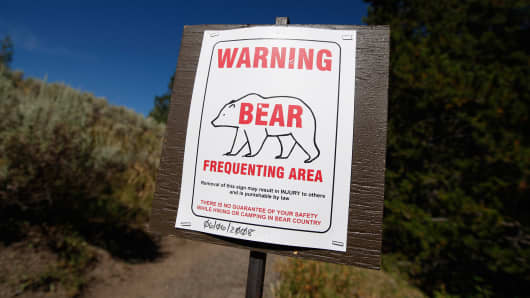Both Napoleon and Hitler fought "two-front wars" which ended, thankfully, in humiliating defeats. The Trump Administration already inoculated to such precedents, political and military, claims a strategy of unpredictability makes it a wily and cunning adversary.
However, for that to be true in the nuclear age, unpredictability needs to be supported by serious back-channel negotiations that make clear U.S. intentions and wins the support of allies and adversaries alike. The risks are simply too high to shoot from the hip.
Pushing Russia and Iran into a corner on Syria won't necessarily lead to a sudden conversion by Moscow and Tehran on the road to Damascus. They are entrenched there and support for the Assad regime may not wither unless the U.S. has the backing of NATO, the U.N. and others who can offer inducements that would lead to an exit strategy for the multi-generational regime. Without that, fighting Assad in Syria can easily move from a proxy war with Russia to a real war with our chief adversary.
In North Korea, the same problem exists, although instead of using "only" chemical weapons, a cornered Kim Jong Un, could easily send a nuclear warhead across the border into the highly populated South Korean peninsula.
No doubt, China, as it was in decades past, becomes an instant adversary, as its border is overrun by North Korean refugees. Japan, Russia and other heavily-populated Asian nations will be on high alert, as the risk of a much broader conflict escalates rapidly.
Wall Street appears to be dancing past this global graveyard without so much as a passing thought. And, true, it represents a worst-case scenario for this new administration.
Having said that, in the first 80, or so, days of the Trump Administration, strategic thinking, coherent strategies on both the domestic and international fronts appear to go wanting.
The new president appears to have little use for threat assessments and the consideration of unintended consequences.
Since he'd rather watch than read, maybe he should view the movie "War Games." At the very end, with global thermonuclear war on the countdown clock, the computer launching the codes to start World War III decides not to, because it's a game in which nobody wins.
If the White House doesn't screen the movie, I certainly hope someone on Wall Street will.
While it is often a fool's errand to predict the timing, size and consequences of a geo-political crisis, it does appear that the risks of one, or more, may be on the event horizon.
Simultaneous conflicts with Syria (read: Russia) and North Korea (read: China), pose perilous issues for the world, obviously. But such a dual duel could put the bears in control of the stock market and set the bull back years.
Bear markets, history shows, are often started by two things; rising interest rates and the onset of war. The Fed is certainly on the path of raising rates. If, indeed, war is a serious risk, then Wall Street will find itself in the teeth of the bear, while the world finds itself in the teeth of an even more fearsome beast.
Commentary by Ron Insana, a CNBC and MSNBC contributor and the author of four books on Wall Street. Follow him on Twitter @rinsana.
For more insight from CNBC contributors, follow @CNBCopinion on Twitter.





